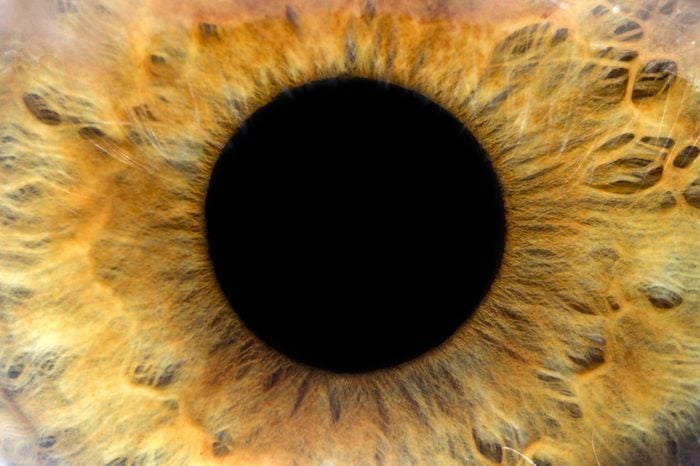
Immunity to sleep deprivation
No, they’re not vampires, but people with a mutation of the DEC2 gene can fall short on sleep yet feel fine. For the 1 percent of the population with this mutation, around six hours a night is fine—an amount that after a few nights would wreck most people. Those with the condition are called familial natural short sleepers (FNSS), and experts believe that some famous people, such as Margaret Thatcher and Winston Churchill, may have had it.

Advanced color vision
The average eye has three cones, which means you can recognize colors in the red, green, and blue spectrums. This means you can distinguish roughly a million different shades, according to the BBC. However, there are so-called tetrachromats who walk among us and have four cones in their eyes. They can see ultraviolet shades, allowing them to appreciate 100 million distinct colors. The rare vision anomaly is more common in women than men, and a lot of people don’t even realize they have it. Don’t miss these 20 obscure facts you never knew about the human body.

Flexible eyeballs
Talk about a crazy party trick—globe luxation is an extremely rare condition in which your eyes can actually protrude out of their sockets. The ability comes with downsides: One study notes the condition results from causes such as “thyroid eye disease, shallow orbit, and floppy eyelid syndrome.” It can also lead to optic neuropathy down the line, so people with the condition should see their eye doctor on a regular basis.

Pitch perfection
Having “perfect pitch” doesn’t just mean you can be a talented singer: This ability allows people to precisely identify musical notes. In other words, they can hear a D minor and name it on the spot. The condition is incredibly rare—less than 1 in 10,000 people have true perfect pitch. Scientific experts debate whether people are born with the ability or if they can learn it; some studies suggest that—with enough dedication and training—you may be able to develop perfect pitch. Find out the 15 incredible things the human body does every minute.

A second row of eyelashes
Those with distichiasis carry a second set of eyelashes that grow from the inner mucosal layer of the eye. According to Medscape, the defect happens when epithelial germ cells fail to differentiate between certain glands. This can be a makeup artist’s dream come true—think lush lashes, no help needed. But for some, extra lashes can irritate the eye and cause problems like tearing, inflammation, and corneal ulcers—if you have these issues, check an optometrist first.

Ability to survive at high altitudes
Anyone who has hiked to the top of any mountain knows that high altitudes can be brutal. But did you know some indigenous groups like Tibetans are able to survive at altitudes as high as Mount Everest? Researchers believe their rare ability comes from years of evolution. Their ancestors who lived in high regions for thousands of years developed red blood cell adaptations that make it possible to survive with insanely low levels of oxygen. Here are 13 strange body facts you’ve probably always wondered about.

Stay underwater up to ten minutes
If 30 seconds of holding your breath induces panic, you’ll appreciate the powers of the Bajau, sea nomads in Southeast Asia. A recent study published in Cell found that the Bajau have evolved an extra-large spleen that serves as a repository of oxygen-rich blood cells. They’re able to calmly spend five to ten minutes fishing underwater without once coming up for air.

Built-in compass
While some of us can’t even travel to the grocery store without the help of Google Maps, others can turn to their natural wayfarer capabilities. History has shown explorers who can navigate and point in cardinal directions without a compass. Researchers at the Queensland Brain Institute discovered that a person’s uncanny ability to find their way is learned gradually and that the brain eventually becomes attuned to a sense of direction in new environments. Find out more about the 9 biggest unsolved mysteries of the human body.

Echolocation
You probably know that dolphins and bats can navigate the world through emitting a sound and locating its echo, but did you know they aren’t the only ones with this ability? Although it’s rarely found in humans, some people can “see in the dark” by replicating this process. A blind man named Daniel Kish has made headlines for the clicking sound he uses as flash sonar to ride bikes and hike through the wilderness.

Supertasters
The average person has around 10,000 taste buds. But some people have a much higher concentration of taste buds. Thanks to their powerful ability to taste, they often have very strong reactions to bitter foods like broccoli or grapefruit. Many people with this condition go on to become professional tasters—they were born for it after all. Next, find out the 11 little-known body parts you didn’t know you had.